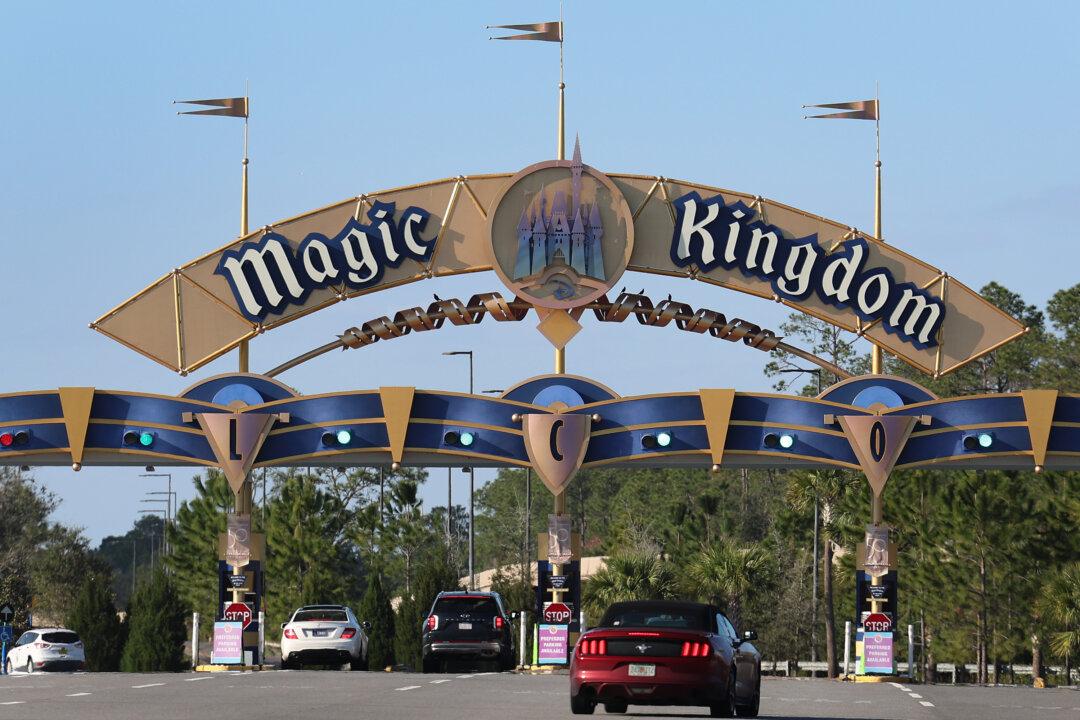The Disney Company’s last-minute deal to retain control of Disney World’s special district is legally flawed for multiple reasons and will probably be voided, a source close to the deal’s investigation said.
Florida Gov. Ron DeSantis has already launched a state investigation into the February deal—one made less than three weeks before the state took control of the district and placed over it five trustees appointed by the governor.





